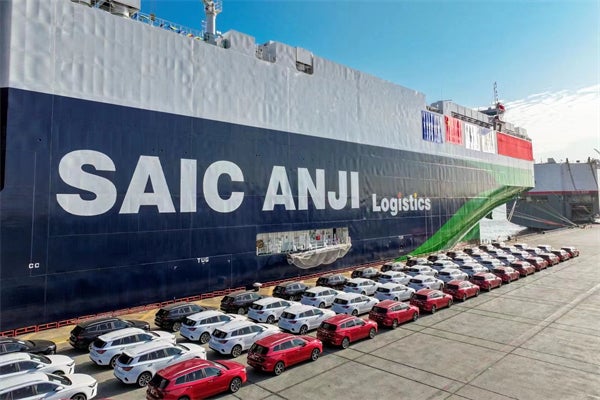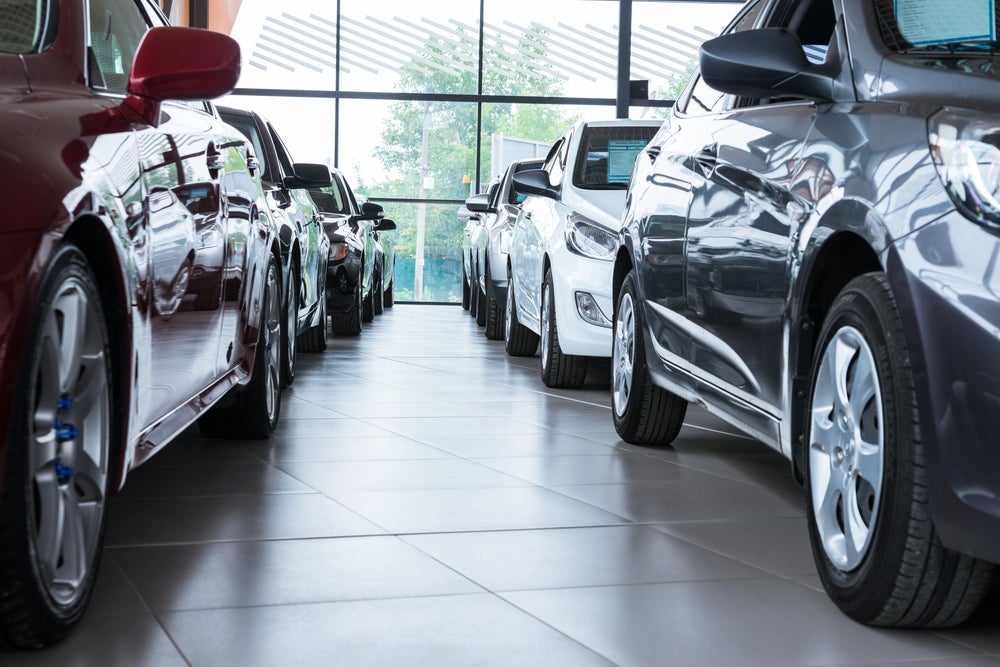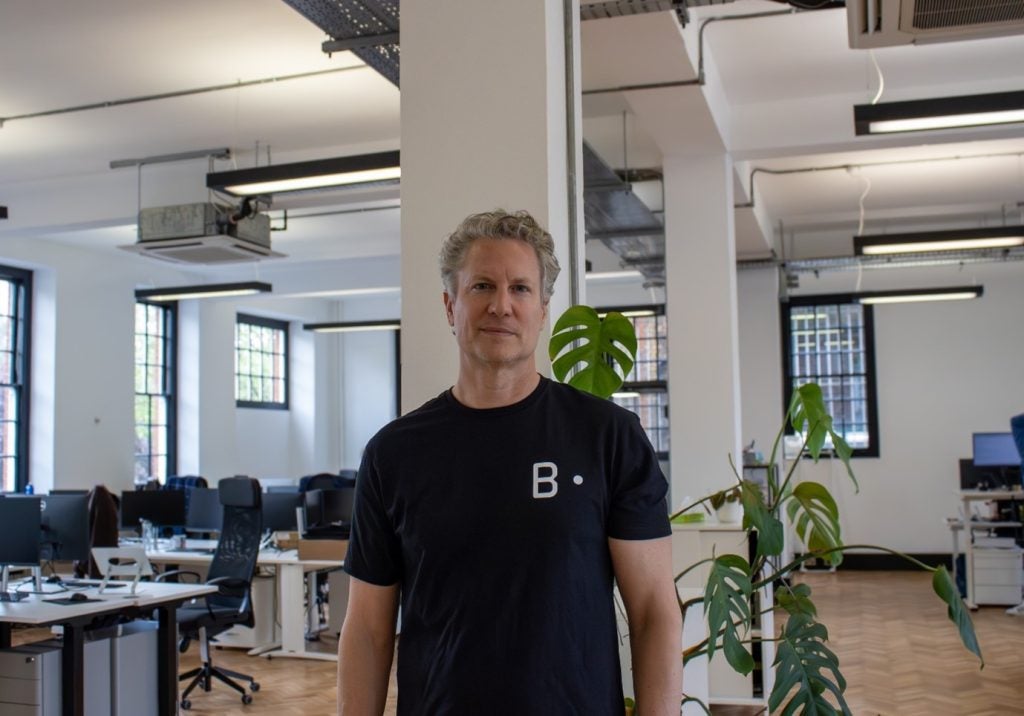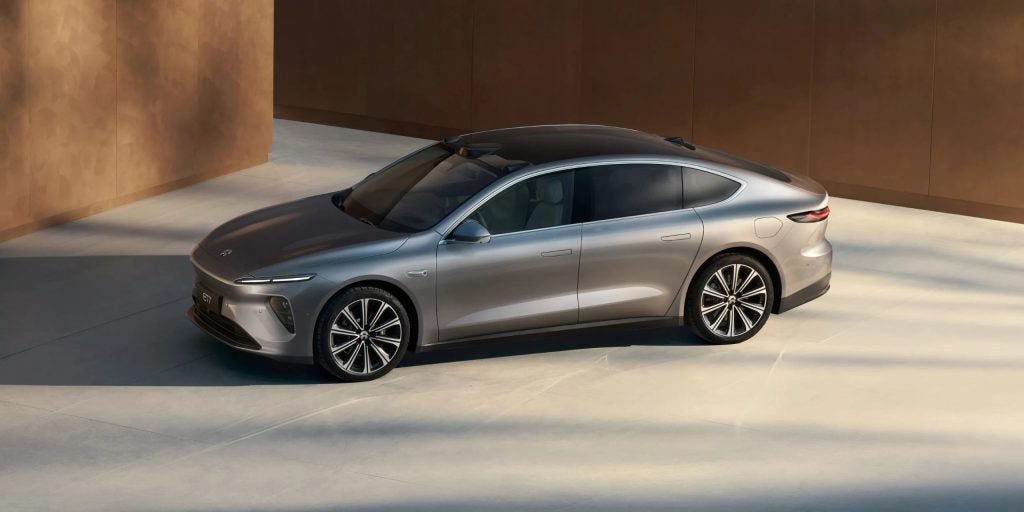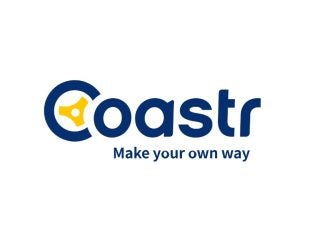
The market offers many car rental and leasing options for individuals and fleet operators alike. However, many still use dated technology and booking systems resulting in a rental process that many view as unnecessarily complex.
UK-based Coastr was developed to create a stress-free, rental booking and fleet operations management experience. The company not only digitises rental booking and fleet operations, but says its third-party integrations and industry partnerships create a mobility ecosystem for effective end-to-end management.
The company claims it is offering car rental and van hire software with advanced AI and telematics which combines booking, fleet, pricing and maintenance functionality.
We spoke to Biswajit Kundu Roy, founder of Coastr, to learn more about the benefits the booking system offers, as well as to touch on the history behind the company.

Just Auto (JA): Could you provide me with some background on the company?
How well do you really know your competitors?
Access the most comprehensive Company Profiles on the market, powered by GlobalData. Save hours of research. Gain competitive edge.

Thank you!
Your download email will arrive shortly
Not ready to buy yet? Download a free sample
We are confident about the unique quality of our Company Profiles. However, we want you to make the most beneficial decision for your business, so we offer a free sample that you can download by submitting the below form
By GlobalDataBiswajit Kundu Roy: (BR): I am quite a regular user of car rental services. That’s where the idea came from – for the company – because I just hated the experience of renting cars. Usually, the service was also quite poor. The starting point was to improve the experience for the everyday user.
When I started looking into the industry and the tech that the industry uses, I was quite appalled to see the lack of innovation in the car rental sector. Much of what I saw was old generation tech that had been developed about 10-15 years ago, with very little innovation since, with lots of fragmented elements – that’s where the idea for Coastr came in.
When I started looking into the industry and the tech that the industry uses, I was quite appalled to see the lack of innovation in the car rental sector.
My mission today is to deliver a much enhanced digital age experience to the end user. For this you need a digital operations capability. That’s what a lot of these fleet operators and car rental businesses were really lacking.
In the first six to eight months, it was all about testing the ideas and thinking about the process. Myself and a couple of other colleagues spent quite a lot of time interviewing potential customers, rental businesses especially. Through that period, we also realised that there were lots of SME businesses doing rental out there. It’s not just the big rental companies or the big players; outside of that there were thousands of small businesses, some of them very local, with small fleets.
The poor processes were evident in large and smaller players; but the small players were really missing out, some of them running on pen and paper, or stretching to Excel spreadsheets.
That gave us a lot of inspiration to start really understanding the pain points. We spent a lot of time interviewing some of these early adopters or customers to start conceptualising what we call an early prototype.
How do users become involved with the service?
We are an entirely software-as-a-service platform company. We are not directly customer-facing with whoever is renting or leasing. We are about the technology that drives the process.
Our customers will generally be fleet operators, leasing companies or rental businesses. We will typically provide an end-to-end technology solution. For example, let’s consider a car rental business that wants to engage with customers through a digital portal, a mobile app, a website – a place where they can log in and look for vehicles and do a lot of self-service digitally. We would provide a solution which is off the shelf which can be custom branded for the specific rental business, and that will be fully integrated to the operation software which then allows that kind of digital experience and user experience to be supported by what we call as a digital operations capability – which covers all aspects of their core operations.
It starts with the ability to manage all the bookings in one place, extending to managing all the fleets, their operations, and that’s also powered by what we call connected mobility or the ability to connect to the asset.
Our vision is the ability to connect to vehicles as a fundamental part of how a mobility business or experience will be shaped.
Our vision is the ability to connect to vehicles as a fundamental part of how a mobility business or experience will be shaped. It is important to understand how the asset is being used or driven and what’s driving that behaviour in the asset. That’s been one of our major emphases when developing the product: how we get the data out of the vehicle and use that to do intelligent things around improving customer experience or improving operations.
What are some of the key benefits the company offers to users, especially when looking at fleet operators?
At the top level of benefits is the increase in efficiency because we provide huge amounts of automation in some of the day-to-day processes. We spend time with small to midsize fleet operators on improving their operations. For example, they often spend quite a lot of time, around three to four hours daily on just looking at compliance such as checking the fleet to see if there’s any outstanding fines, or if the MOT (UK road worthiness certification) is correct, or if there are damages on the vehicle, making sure that the service and repairs are on time and so on.
There’s a lot of fleet management activity which I would say is day-to-day admin and complaince; it takes about three to four hours of people’s time, typically, for any fleet operator. We have automated a lot of those processes; we look at diagnostic codes, if there are any engine lights or warning lights, or how the vehicle has been used to put together a view on what we call proactive maintenance. A car rental company’s ‘bread and butter’ is the vehicle; that’s where the money is, so reducing downtime is very, very key.
We use the data on the vehicle and the processes and try and automate that so that they can maximise capacity utilisation and become more efficient.
Then there are other things – potential improvements – that come from the customer experience perspective.
From using the contactless side of things, we can optimise how the deliveries in the logistics of the vehicles are managed to the Coastr platform. For things like staying on top of MOT, we have connected to DVLA (UK gov agency that certifies vehicles for use), so we get all the MOT checks and their expiry dates for fleet vehicles, and also the relevant taxations from the DVLA database, to keep reminding our customers and their customers about when MOTs are due to expire, if they have to refresh the annual taxation etc.
Then there are other benefits on the fleet management side such as being able to handle service and maintenance of the vehicle. We are just about to release a new feature, an integrated feature where we have partnered with Epyx. They are one of the largest networks for service and maintenance connectivity.
Through this integration, our customers will be able to organise all their service and maintenance jobs, create the service jobs on Coastr and pass it on to the Epyx platform. Once the data is fed back into the system from Epyx, it will help with making fleet decisions and seeing the profitability of the vehicle.
Have you run any benefits studies among your customers? Can you quantify the value that Coastr is delivering to its ecosystem customers?
Our recent findings from customer feedback/claims and industry figures available publicly, have shown time and cost savings as well as revenue expansion across different fleet sized companies.
On an average, our customers with fleet size ranging from 26 to 100 vehicles experience a monthly time savings of 37 hours on administrative tasks such as bookings, verification checks, and onboarding of vehicles. This is achieved through various efficiency gains from our processes being faster, simpler as well as direct integrations which automates checks eliminating manual interventions.
In terms of cost savings, a customer with average fleet size ranging from 26 to 100 vehicles can experience an annual savings of approximately £159,300 which extrapolates as the fleet size increases to 1000+. This includes theft prevention when they used our remote immobilisation feature, cost saved in additional personnel costs due to high efficiency and reduced manual tasks, printing costs eliminated through digital bookings and very importantly – not only cost but months of effort saved in building an integrated white-labelled booking portal that would enable them to accept online customers without losing their brand identity.
How does the company assist fleet operators manage their carbon footprint?
A clear winner for a fleet operations company these days is understanding their carbon footprint and carbon emissions. We have a carbon footprint dashboard in the system to help the fleet owners understand the positive impact of having EVs in the fleet.
They can see the difference between the use of ICE vehicles, the petrol and diesel, versus EVs and create reports to measure impacts.
This is a great feature, especially in larger companies where at the board level there may be environmental requirements to report on the ESG and net zero plans. So the Coastr platform helps large companies really understand their carbon footprints, and make meaningful interventions to help reduce them, at least from a fleet level.
What are the company’s plans for further growth?
For us we are looking at growth in three main areas. One is, from a product perspective – and we have already kicked off that evolution – by incorporating all aspects of shared mobility. We are evolving from a mainly rental management vertical to also having car sharing, car subscription and flexi-leasing capabilities in the system. That’s a natural evolution and growth, which allows us to service different types of customers and gives us the ability to build vertically. That’s one area of growth that we see in the next two to three years as we consolidate and acquire more customers on the other aspects of shared mobility.
The second area of growth for us is in segments. Being an early, new entrant into the industry we initially were focused on a lot of car rental businesses and SMEs. But now, I think we have a few larger brands who are due to come on board very, very soon. We see that kind of growth in terms of the segmentation as we’re working with small to midsize companies, we are moving up the chain to larger brands.
The third area that we see growth in is expansion or new markets around the world where we have dipped our toes in already such as the US market last year. We had about 20 customers that we acquired and experimented with, and I think the US is going to be quite a sizable market for us as we plan and expand into that. Alongside that we also see some opportunities in the Asian market and European markets.



